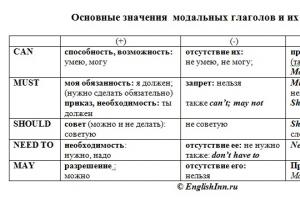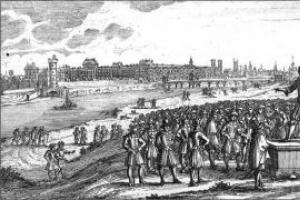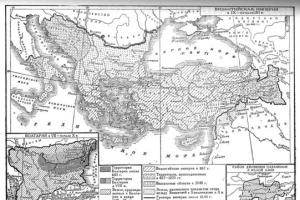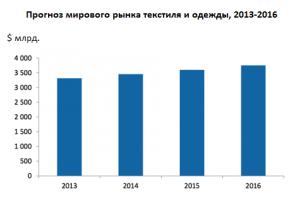English preposition ‘ by’ can be used in different meanings - as a preposition of place, manner of action, time. Let's take a closer look at these cases.
The preposition BY in the meaning of the manner of action
In this meaning, the preposition ‘by’ is used to indicate how an action is performed, for example:
- send something by mail / post – send something by mail
- do something by hand - do something with your hands
- pay by credit card / check – pay by credit card / check
- happen by mistake / by accident / by chance - happen by mistake / by chance
Please note that in these phrases the noun is used without an article.
- We hadn't arranged to meet. We met by chance. – We didn’t plan the meeting. We met by chance.
- I didn’t put the pullover in the washing machine, I washed it by hand. – I didn’t put this sweater in the washing machine, I washed it by hand.
The preposition 'by' is also used to indicate a way of moving or traveling:
by car / by train / by plane / by boat / by bus / by bicycle / by road/ by rail/by air / by sea / by underground
- How did you get here? Did you come by bus? - How did you get here? By bus?
- How long does it take to cross the Atlantic by sea? - How long does it take to cross the Atlantic by ship?
Note: By analogy, some use the preposition ‘by’ when talking about moving on foot - by foot. This is not entirely true. The correct form is on foot.
- Sorry we are late. We missed the bus and had to travel on foot. - Sorry, we're late. We missed the bus and had to walk.
As you may have noticed, in these examples the noun is without an article. If a noun is used with an article or a possessive pronoun, then other prepositions are used: in (car and taxi) or on (bicycle, public transport).
- They didn't come in their car. They came in a taxi. - They didn’t come in their car. They arrived by taxi.
- We traveled on 7.45 train. - We went by train at 7.45.
Instrumental preposition BY
In the passive voice, using the preposition by, the sentence describes the performer of the action:
- Have you ever been bitten by a dog? – Have you ever been bitten by a dog? (have you ever been bitten by a dog?)
- This candidate is supported by a lot of people. – This candidate is supported by many people (this candidate is supported by many people)
- This man was followed by a big crowd. “There was a large crowd following the man.
Do not confuse with the instrumental preposition with, which introduces the means of performing an action. Compare:
- The door must have been opened by someone. – The door must have been opened by someone (someone - the performer)
- The door must have been opened with a key. - The door must have been opened with a key (the key is the means)
The preposition BY in the meaning of location
As a preposition of place, by means “near, near, at”
- Who is that man standing by the window? -Who is this man standing at the window?
- There was a small table by the bed with a lamp and a clock on it. – Near the bed there was a small table with a lamp and a clock on it.
The preposition by also means “to” when 2 quantities are compared, for example, in the following sentences:
- My daily newspaper used to cost 50 pence. From today it costs 60 pence. The price has gone up by 10 pence. My daily newspaper used to cost 50p. Now it costs 60. The price has increased by 10 pence.
- Claire's salary was $1,000 a month. Now it is $1,100. Her salary has increased by $100 a month. – Claire’s salary was $1,000 per month. Now it is $1,100. Her salary increased by $100 per month.
The preposition BY in the meaning of time
As a preposition of time, by is translated as “to (such and such a time), before (such and such a time)”
Fred is away at the moment. He'll be back by Monday. – Fred is away at the moment. He'll be back by Monday.
- Sorry, but I must go. I have to be at home by 11 o’clock. Sorry, but I have to leave. I need to be home by 11.
- I’ll have finished my work by 11.30 - I’ll finish work by 30
You can also say " by the time something happens / happened" And " by then"(by the time something happens/has happened)
- Peter finally arrived at the party, but by then most of the guests had gone. Peter eventually came to the party, but by then most of the guests had already left.
- By the time I finished my work, it was too late to go shopping. – By the time I finished work, it was too late to go shopping.
- By the time you come I will have finished cooking. - By the time you come, I will have finished cooking.
In order not to miss new useful materials,
The English language, like Russian, has two groups of parts of speech: independent and auxiliary. Functional words include , particles, modal words, exclamations and ( prepositions). The information in this article is devoted to prepositions. You will learn what prepositions there are in English and how to use them correctly. After all, the literacy of your speech depends on the use of prepositions in English.
A preposition is an auxiliary part of speech that expresses a syntactic relationship between and words belonging to other parts of speech. In their structure, prepositions are simple ( on, near, for), complex ( outside, into), compound ( because of,in front of, in accordance with). There is also a classification of prepositions depending on the relationships they express (prepositions temporal, spatial, directions, causal, etc.).
English prepositions and Russian cases
The choice of preposition in English may also depend on which Russian case we are talking about. There are six cases in Russian. Here are the prepositions that correspond to them:
- Nominative case (who? what?)
young woman - This girl wants to buy a bouquet of flowers. (without preposition)
- Genitive case (whom? what?)
girls – The bouquet of this girl is lying on the table. (preposition of)
- Dative case (to whom? to what?)
girl – I am giving this bouquet to the girl. (preposition to)
- Accusative case (whom? what?)
girl - My mother likes this girl. (without preposition)
- Instrumental case (by whom? with what?)
girl – This bouquet of flowers is bought by the girl. (prepositions by / with)
- Prepositional case (about whom? about what?)
about the girl - I am talking about this girl. (prepositions about / of)
Moreover, many verbs, nouns, and adjectives in English are used strictly with certain prepositions. Therefore, these parts of speech should be taught together with prepositions. For example: verb to wait(to wait) necessarily requires a preposition after itself for. Or verb to listen(listen) used only with a preposition to. Adjective proud(proud) requires a preposition of, and the use of an adjective satisfied(satisfied) possible only with a pretext with. The same goes for nouns. Behind the words advantage / disadvantage(advantage, disadvantage of something) follows only a preposition of, and after the noun damage(damage, harm to someone or something) it is worth putting exactly a preposition to.
The most common prepositions in English
The use of prepositions in English implies mandatory knowledge of their meanings, translation options and areas of application. We will not list all the prepositions of the English language, but will name only a few of the most famous. The meaning of the rest and their connection with certain parts of speech should be further clarified.
- Prepositions of direction:
- to the left- to the left
- to the right- to the right
- up- up
- down- down
- off- With
- onto- on
- towards- towards
- away, from- from
- through– through, through
- out of- from
- into- V
- along- along
- past- past
- across- through
- Prepositions of location:
- above- above
- over- above
- between- between
- near, at, by, beside- near, near, at
- behind- behind, behind
- under- under
- below- under
- outside- from
- in front of- before
- Prepositions of time:
- at– in hours
- in– in months, years
- on– in days
- from– c, from
- to- until some point
- since- from some point
- till- before
- before- before, before
- after- after
- about– about, approximately
- for– over a period of time
- during– during + noun
- by- at some point
- Causal prepositions:
- because of- because
- in accordance with- according to, in accordance with
- on account of- as a result of, due to
- thanks to- thanks to
Use of prepositions in English can be called a kind of "
Prepositions
Shares
Preposition (preposition)- an independent part of speech. Usually prepositions indicate place, direction or time. Prepositions are usually placed before the noun. The same preposition can be translated differently, depending on the context. For example, at the window= at the window; at 2 o'clock= at 2 o'clock. Be careful when translating prepositions into Russian (there may be a large number of options).
Prepositions of time in English.
| Pretext | Usage | Example |
| On | Days of the week | On Sunday |
| In | Months, seasons, time of day, year, after a certain period of time | In May/in summer, intheevening, in 2016
in anhour. |
| At | Night Weekend |
Atnight
Atthe weekend At 8 p.m. |
| Since | From a certain point in time until now | Since 2006 |
| For | For some time, including the present | For 3 months |
| Ago | A certain period of time ago | 5 years ago |
| Before | Before any point in time | Before 2014 |
| To/Till/Until | Start and end of time period | From Tuesdayto/till Friday |
| By | To a certain point in time | By11 o'clock, Iwill haveread five pages. |
Prepositions of place in English.
| Pretext | Usage | Example |
| In | In a room, building, on the street, in a city, in a country, in a book, in a car, in a painting, in the world | in the kitchen, in London
in the book in the car, in a taxi in the picture, in the world |
| At | At the table, at some event, place of study, work, etc. | at the door, at the station
at the table at a concert, at the party at the cinema, at school, at work |
| On | Something attached Place associated with the river, on the surface, left/right, on the floor in the house, on public transport, on television, radio |
the picture on the wall
London lies on the Thames. on the table on the left on the first floor on the bus, on a plane on TV, on the radio |
| Under | Under something or lower than something else | the bag is under the table |
| Over | Meaning more than | put a jacket over your shirt
over 16 years of age walk over the bridge climb over the wall |
Other important prepositions in English.
| Pretext | Usage | Example |
| From | From whom | a present from Jane |
| Of | Part of something, genitive case | a page of the book
the picture of a palace |
The topic of prepositions in the English language is almost inexhaustible. We have repeatedly considered various prepositions on the pages of our website. English preposition ‘ by’ can be used in different meanings - as a preposition of place, manner of action, time. Let's take a closer look at these values.
Preposition of course of action
Google shortcode
In this meaning, the preposition ‘by’ is used to indicate how the action is performed, for example -
- send something by post – send something by mail
- do something by hand - do something with your hands
- pay by credit card / check – pay by credit card / check
- happen by mistake / by accident / by chance - happen by mistake / by chance
Please note that in these phrases the noun is used without an article.
- We hadn't arranged to meet. We met by chance. – We didn’t plan the meeting. We met by chance.
- I didn’t put the pullover in the washing machine, I washed it by hand. – I didn’t put this pullover in the washing machine, I washed it by hand.
The preposition 'by' is also used to indicate a method of travel:
by car / by train / by plane / by boat / by bus / by bicycle / by road/ by rail/by air / by sea / by underground
- How did you get here? Did you come by bus? - How did you get here? By bus?
- How long does it take to cross the Atlantic by sea? — How long does it take to cross the Atlantic by sea?
Note: By analogy, some use the preposition ‘by’ when talking about moving on foot - by foot. This is not entirely true. The correct form is on foot.
- Sorry we are late. We missed the bus and had to come on foot. - Sorry, we're late. We missed the bus and had to walk.
As you may have noticed, in these examples the noun is without an article. If a noun is used with an article or a possessive pronoun, then other prepositions are used: in (car and taxi) or on (bicycle, public transport).
- They didn't come in their car. They came in a taxi. — They didn’t come in their car. They arrived by taxi.
- We traveled on 7.45 train. — We went by train at 7.45.
Instrumental preposition by
In the passive voice, the performer of the action is introduced using the preposition by:
- Have you ever been bitten by a dog? – Have you ever been bitten by a dog? (have you ever been bitten by a dog?)
- This candidate is supported by a lot of people. – This candidate is supported by many people (this candidate is supported by many people)
- This man was followed by a big crowd. “There was a large crowd following the man.
Do not confuse with the instrumental preposition with, which introduces the means of performing an action. Compare:
- The door must have been opened by someone. – The door must have been opened by someone (someone - the performer)
- The door must have been opened with a key. — The door must have been opened with a key (the key is the means)
Preposition of place
As a preposition of place, by means “near, near, at”
- Who is that man standing by the window? -Who is this man standing at the window?
- There was a small table by the bed with a lamp and a clock on it. – Near the bed there was a small table with a lamp and a clock on it.
The preposition by also means “to” when 2 quantities are compared, for example, in the following sentences:
- My daily newspaper used to cost 50 pence. From today it costs 60 pence. The price has gone up by 10 pence. My daily newspaper used to cost 50p. Now it costs 60. The price has increased by 10 pence.
- Claire's salary was $1,000 a month. Now it is $1,100. Her salary has increased by $100 a month. – Claire’s salary was $1,000 per month. Now it is $1,100. Her salary increased by $100 per month.
Preposition of time
As a preposition of time, by is translated as “to (such and such a time), before (such and such a time)”
- Fred is away at the moment. He'll be back by Monday. – Fred is away at the moment. He'll be back by Monday.
- Sorry, but I must go. I have to be at home by 11 o’clock. Sorry, but I have to leave. I need to be home by 11.
- I’ll have finished my work by 11.30 - I’ll finish work by 30
You can also say " by the time something happens / happened" And " by then"(by the time something happens/has happened)
- Peter finally arrived at the party, but by then most of the guests had gone. Peter eventually came to the party, but by then most of the guests had already left.
- By the time I finished my work, it was too late to go shopping. – By the time I finished work, it was too late to go shopping.
- By the time you come I will have finished cooking. - By the time you come, I will have finished cooking.

The most ancient and popular prepositions in the English language are in at on. Over the course of many centuries, due to repeated use, these functional parts of speech have acquired various functions and semantic meanings. There are many nuances in the use of these words, so they should be taken very seriously, since their incorrect use, both in speech and in writing, can create an awkward situation or call into question the speaker’s literacy.
The preposition IN is used with months, with names of seasons, with years, with long periods of time (in the 16th century). Examples:
- I’m going on holiday in August.— I'm going on vacation in August.
- Kate left school in 1998.— Katya graduated from school in 1998
- The garden is magic in winter.— The garden is magical in winter.
- This castle was built in the 13th century.— The fortress was built in the 13th century.
Remember! If a date is indicated, the preposition on is used, not in.

The preposition AT is used to indicate time when talking about the clock (at 2 o'clock, at 6 o'clock), certain moments of the day (at lunch, at midnight, at noon, at night), weekends/holidays (Easter, Christmas). Examples:
- We will meet at 9 o'clock.- We will meet at nine o'clock.
- I'll come back at midday.— I'll be back at noon.
- People gives presents to each other at the New Year.— People give each other gifts on New Year's Day.
- It rains at night.— It rains at night.
Remember! If you mean a specific night, you can also use the preposition of time in:
- Christmas is coming. All the dreams come true in the night.- Christmas is coming. On this night all dreams come true.
Remember! In American English they say on the weekend, not at the weekend.
Also, the preposition AT in English is used in set expressions that need to be memorized:
- at the moment - at the moment
- at present - currently
- at the same time - at the same time
- at that/the time - at that/certain time
- at the age of - at the age of ... years
Example: He is sleeping at the moment. At the moment he is sleeping.
The preposition ON is used before dates (September 5, May 16), days of the week (Wednesday, Saturday, Friday), as well as special dates (birthday, wedding, etc.). Example:
- He was born on March 10.— Born on March 10.
- Call me on Saturday.- Call me on Saturday.
- Who will come on your birthday?- Who will come to your birthday?
All of the above can be summarized in one table, which you can (at first) look into when performing strengthening exercises.
In addition, you need to remember the following rules:
Prepositions of time are never used with the words all, this, one, some, that, each, any, last, next, every!
- He is coming back next Monday.— He'll be back next Monday.
- I went to Greece last year.— I went to Greece last year.
Prepositions of time are never used with the words tomorrow, yesterday, tonight, today.
- Ann saw them yesterday morning.
- Anna saw them yesterday morning.
The use of prepositions IN, AT, ON in the meaning of place
The preposition IN is used in speech to denote the position of an object inside something: a larger object, a building, a territory - in a word, a closed space.
- We will go for a walk in the park. — We'll take a walk in the park.
- My coins are in my purse.— My coins are in my wallet.

The preposition IN is also used to indicate a place of work, but with one amendment.
- He works at Tate. — He works at Tate.
- He works in a shop— He works in a store.
Although the sentences refer to one place, the first case refers to the company itself, while the second case specifically refers to the place of work.
Remember! These phrases need to be memorized:
- work on a farm- work on a farm, BUT work in a factory- work in a factory.
The preposition IN should be used when indicating the location of an object inside a building:
- It was raining, so I decided to shelter in the cafe.— It was raining, so I decided to take refuge in a cafe.
Both the prepositions in and on are used before road names.
- The Petrol Station is on/in Wood Road.— The gas station is on Wood Road.
The preposition IN is used before the names of cities and countries: in Greece, in Russia, in London.
The preposition ON in the meaning of place must be used when denoting an object that is on a flat surface or in contact with it (on the celling - on the ceiling; on the wall - on the wall; on the floor - on the floor, etc.)
- John built the cottage on the lake.— John built a cottage on the lake.
- I saw a big stone on the road.— I saw a big stone on the road.
As for travel by transport, both the preposition in and on are used here, depending on the meaning. Let's look at examples:
- He is going to come on a train.— He's going to come by train.
- Alice was in the train when I've come to meet her.— Alice was on the train when I came to meet her.
In the first case, it means the use of a certain type of transport, and in the second, the fact of being inside the vehicle itself. An exception is the phrase “in a car”. The preposition in is always used here.
The preposition AT is usually used when one means a specific place or point, rather than an area or an unlimited abstract territory.
- There were a lot of directors at a festival.— There were many directors at the festival.
- I met her at Mary's Birthday.— I met her at Mary’s birthday party.
As you can see, in the phrases at a festival and at Mary’s Birthday the preposition indicates a specific place.
The preposition AT is also used before the names of cities, implying institutions located there or large-scale events and activities taking place there.
- There were a lot of well-known people at London Theater Festival.— Many famous people were present at the festival in London.
- Many well-known people live in London. — Many famous people live in London.
The difference is clear even to those who do not yet have a deep knowledge of English or those who know little about the theatrical life of London. London in the first case is part of the name of the event (London Theater Festival), and in the second case the city itself is meant.
The preposition AT is used before the names of educational institutions, abbreviating and hiding their full name.
- I study at Moscow (The University of Moscow).— I study at the University of Moscow.
Compare:
- I study in Moscow.— I study in Moscow (meaning the city itself).
You can use the preposition AT when talking about various organizations:
- She works at L'Oréal.— She works at L'Oreal.
The preposition AT is used before the names of buildings and structures when they act as specific points or landmarks: at school, at the dentist’s, at the supermarket, at the shop etc.
- Tom was at the planetarium yesterday.— Tom was at the planetarium yesterday.
- Robbie eats at McD on Friday.— Robie eats at McDonald's on Fridays.
The preposition AT precedes numbers when indicating an address.
- Their house is at 36 Park Avenue.— Their house is located on 36th Park Avenue.
The preposition AT is placed before the name of the street when any institution located on it is indicated.
- The presidents were meeting today at Downing Street.— Today the presidents met at Downing Street.
In this case, we mean the residence of the Prime Minister of Great Britain, located at this address, and not the street itself.
However, when referring to a financial institution on Wall Street, they say on Wall Street.
And one more nuance when using the preposition AT: according to the general rule, it always follows the verb “arrive” (to arrive).
- We arrived at the station in time.— We arrived at the station on time.
But if we are talking about arriving in a large city/metropolis, then the preposition IN is used.
- The airplane arrives in Chicago at 14.20.— The plane arrived in Chicago at 14.20.
Prepositions IN, AT, ON in fixed expressions

Word combinations and phrases that were formed during a certain period of history and did not change for a long time are called stable expressions. There are no clear rules for the use of prepositions in such constructions, so they need to be learned by heart. Here are the most common ones:
- in somebody’s opinion - in someone’s opinion;
- in fact - essentially, in fact, in fact;
- in case - in case;
- on the radio/television - on radio/television;
- on holiday/business/a trip/an cruise, etc. - on vacation/on a business trip/on a trip/on an excursion/on a cruise, etc.;
- at last - finally.
- Cafe is closed. The stuff is on holiday.— The cafe is closed. The staff is on vacation.
- In my opinion he is very clever boy.- In my opinion, he is a very smart boy.
- The sky was cloudy and I took my umbrella just in case.— The sky was cloudy, and I decided to take my umbrella just in case.
- I’ll hear her speech on the radio tomorrow.— I'll listen to her speech on the radio tomorrow.
- At last, I read this book till the end.— Finally, I read this book to the end.
Strengthening exercises
Insert suitable prepositions of time.
- I'm busy... the moment. 2. He will come back ... an hour. 3. We will go to New York... next week. 4. They got married… June. 5. Do you work... Saturdays. 6. Let’s meet… 7 pm tomorrow. 7. I call parents... every Sunday. 8. The bus leaves... ten minutes. 9. I’ll get my money… the end of the month. 10. I go to the gym… Mondays, Wednesdays and Fridays.
Answers: 1. at, 2. in 3. sentence is complete 4. in 5. on 6. at 7. sentence is complete 8. in 9. at 10. On Translate the following sentences into English.
- He will go to work on Saturday. 2. We will arrive at 8 o'clock. 3. She was born in July. 4. The store was opened in 2003. 5. They got married on September 12. 6. We will go skiing this winter.
Complete the sentences with suitable prepositions.
- Do you sometimes watch TV ____ the mornings? 2. Are you usually at home ____ 7 o’clock ____ the evenings? 3. Do you sometimes work ___night? 4. What do you usually do ____ weekends? 5. Do you usually go shopping ____ Saturdays? 6. Do you go skiing ____ the winter? 7. Do you have a holiday ____ December? 8. Is there a holiday in your country ____ 6, January?
Answers: 1 in, 2 at/ in, 3 at, 4 at (Br. E) or on (Am. E), 5 on, 6 in, 7 in, 8 on.








